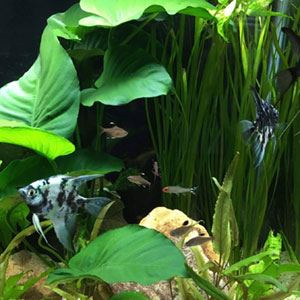- Home
- Pet Owners
- Advice for Fish Lovers
- Water and Welfare
Water and Welfare
Dr Richmond Loh, also known as The Fish Vet, has some excellent advice on looking after your pet fish. Click one of the 4 links below to download an informational PDF: Beginner’s Guide to fish keeping Training You can train fish too! Watch one of our members train her fish to swim through a hoop, below! End of life Sadly, there are times when euthanasia is the only humane course of action for our sick fish. Dr Caraguel of the University of Adelaide, an expert on fish behaviour and disease provides some dos and don’ts when euthanising fish at home. Do not:
|

 It might sound silly to say, but it can be easily forgotten – the most important thing to a fish is water! Water quality has the ability to influence your pet’s physical health, behavioural health and overall welfare. Salinity, chlorine, pH levels, hardness, temperature and nitrogenous compounds impact the quality of your fish’s water. Using tap water to fill your aquarium is OK, however, chlorine is extremely toxic to fish, so to make it safe let it sit for at least 24 hours.
It might sound silly to say, but it can be easily forgotten – the most important thing to a fish is water! Water quality has the ability to influence your pet’s physical health, behavioural health and overall welfare. Salinity, chlorine, pH levels, hardness, temperature and nitrogenous compounds impact the quality of your fish’s water. Using tap water to fill your aquarium is OK, however, chlorine is extremely toxic to fish, so to make it safe let it sit for at least 24 hours.